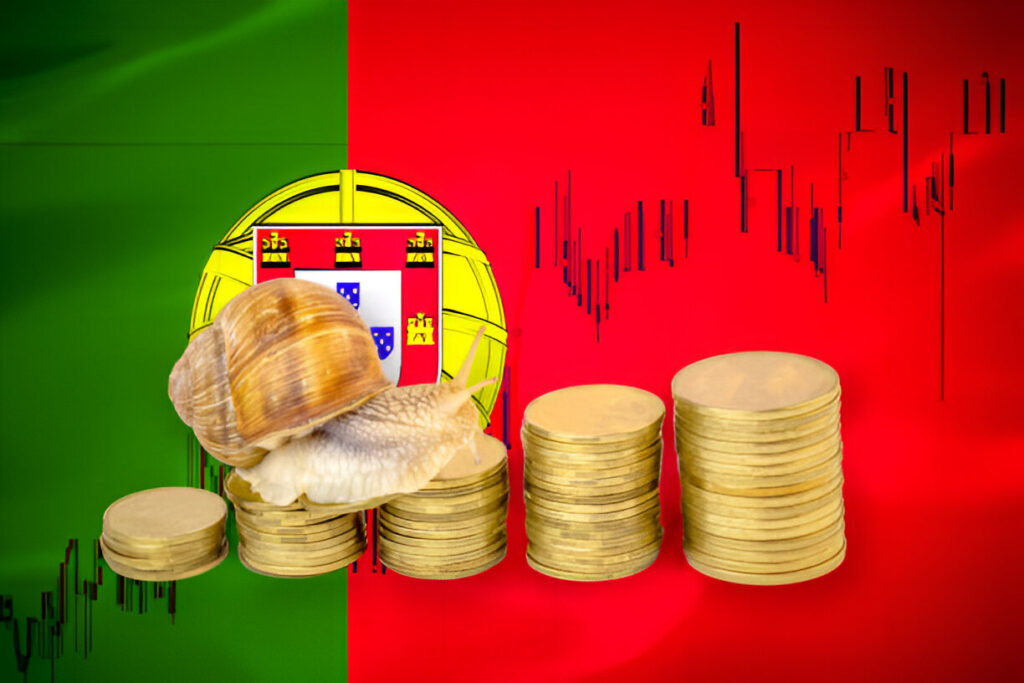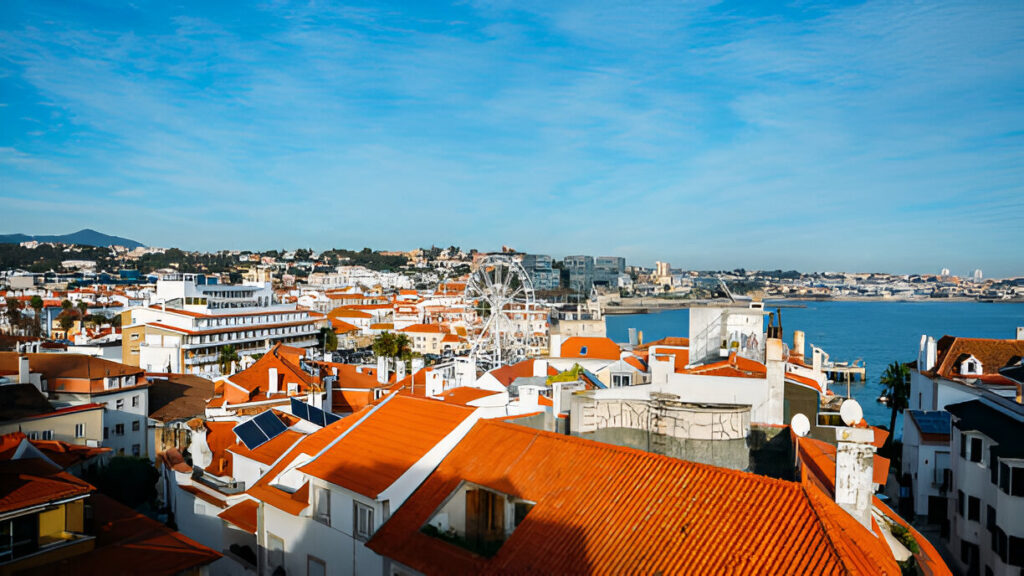When planning a move or an extended stay, the cost of living in Portugal is crucial. Exploring options like long-term and summer rentals in Portugal can give you an idea of housing costs. While some may wonder about the overall expense, utilities and food costs in Portugal are generally affordable. Understanding these factors can help you budget effectively and enjoy your time in this beautiful country.
Key Takeaways
- Rent Prices: Vary by location, with higher costs in Lisbon and Porto. Long-term rentals are generally cheaper than short-term options.
- Utility Costs: Affordable, averaging €130 to €250 per month for electricity, water, and internet.
- Food Expenses: Groceries typically cost between €150 and €250 per month. Dining out is budget-friendly, with meals ranging from €15 to €30.
- Budget Comparison: Compare Portugal’s living costs with your home country to adjust your budget accordingly.
- Cost-Saving Tips: Use local markets, public transportation, and adjust your housing to save on living expenses.
Cost of Living in Portugal – What You Need to Know
Knowing the cost of living is essential when planning a move or a long stay in Portugal. This involves examining various aspects of your monthly expenses, including housing, utilities, food, and other daily needs. By grasping what these costs entail, you can effectively plan your budget and manage your finances.
You’ll want a general idea of typical monthly expenses, which will help you prepare for the financial aspects of living in Portugal. Additionally, comparing Portugal’s living costs to those in other countries can give you insight into whether Portugal is a cost-effective option. This comparison will help evaluate if Portugal fits your financial means and lifestyle preferences.
What to Expect for Living Costs in Portugal
When relocating to Portugal, understanding the cost of living is essential for budgeting and financial planning. This section provides a comprehensive look at various expenses you’ll encounter while living in Portugal.

Overview of Typical Monthly Expenses
Living in Portugal involves several recurring expenses. Here’s a detailed look at what you can expect:
- Housing Costs: Rent is a significant part of your monthly expenses. In Portugal, rental prices vary widely depending on the city and type of accommodation. Important cities like Lisbon and Porto have higher rental costs than smaller towns or rural areas. Generally, long-term rentals are more cost-effective than short-term or vacation rentals, providing better rates over an extended period.
- Utilities: Your monthly utility bills will include costs for electricity, water, gas, and internet. In Portugal, these utilities are generally affordable. However, your total utility costs can fluctuate based on your home’s usage and size. For instance, larger homes or apartments will naturally incur higher utility bills, and excessive heating or air conditioning use can increase your expenses.
- Groceries: Food prices in Portugal are relatively low compared to many other Western European countries. Shopping at local markets and discount stores can help you decrease grocery expenses. Dining out is also more budget-friendly in Portugal. Meals at restaurants are generally cheaper than in countries like France or Germany, making eating out an accessible option for many.
- Transportation: Costs for transportation can vary based on your mode of travel. Public transportation in Portugal, including buses and trains, is generally inexpensive. If you own a car, you must budget for fuel, insurance, and maintenance. While owning a car can provide convenience, public transport or walking in cities can save money.
Youtube:
How Affordable is Portugal Compared to Other Countries?
Comparing Portugal’s living costs to those of other countries can provide valuable insights:
Housing and Rent:
Portugal often offers more affordable rental options than in major cities like France or the UK. Although Lisbon and Porto are the pricier cities within Portugal, they still present better rental deals than many Western European capitals. The overall rental market in Portugal remains competitive and generally more budget-friendly.
Utilities and Daily Expenses:
Utility costs in Portugal are typically lower than in many European countries. This includes expenses for services such as electricity and internet, which are more reasonably priced in Portugal. Portugal’s utilities offer good value compared to nations with higher living costs.
Food and Groceries:
Portugal is known for its lower food costs, especially compared to countries like Switzerland or Norway. Whether you’re shopping for groceries or dining out, Portugal provides a more affordable option for food-related expenses. This can significantly impact your overall budget and make living in Portugal more financially comfortable.
By carefully evaluating these costs and comparing them to those in other countries, you can better plan your move and manage your finances in Portugal. This information is vital for setting up a practical budget and ensuring that your financial expectations align with the cost of living in your new home.
How to Handle Housing Costs in Portugal?
Managing housing costs effectively is crucial for budgeting when living in Portugal. Here’s a detailed guide on housing expenses, including long-term rentals, summer rentals, and monthly fees.

Key Details About Portugal Rentals Long-Term
Renting a property long-term in Portugal offers several advantages:
- Stability and Predictability: Long-term leases typically provide more stable rental costs than short-term or vacation rentals. This stability is beneficial for budgeting and planning.
- Cost Efficiency: Long-term rentals often have lower monthly rates than short-term options. This is due to the decreased frequency of tenant turnover and the longer commitment.
- Lease Terms: Long-term leases usually last for a year or more, and tenants often have the option to renew. The terms are generally more flexible than short-term rentals, which can be advantageous if you plan to stay in Portugal for an extended period.
What You Should Know About Summer Rentals in Portugal
Summer rentals in Portugal can be quite different from long-term leases:
- Higher Rates: During the summer months, rental prices for short-term accommodations often increase due to high tourist demand. If you’re planning to rent during peak season, be prepared for higher costs.
- Short-Term Flexibility: Summer rentals typically offer more flexibility with lease terms, allowing you to rent for a few weeks or months. This can be ideal for temporary stays or vacations.
- Availability and Booking: It’s essential to book summer rentals well in advance to secure your preferred accommodation and avoid higher prices. Availability can be limited during the peak tourist season.
Insights on Monthly Rentals in Portugal
Monthly rentals offer a middle ground between long-term leases and short-term stays:
- Varied Pricing: Monthly rental rates vary based on location, property size, and amenities. Significant cities like Lisbon and Porto generally have higher monthly rates than smaller towns.
- Lease Duration: Monthly rentals are ideal if you’re not ready to commit to a long-term lease but still need a more stable housing solution than short-term vacation rentals.
- Furnishing and Utilities: Some monthly rentals come furnished, which can save on initial setup costs. Be sure to check whether utilities are included in the rental price or billed separately.
Rental Cost Comparison Table
The table below provides a general overview of rental costs in Portugal, categorized by city and rental type. Prices can vary based on specific locations, property conditions, and seasonal changes.
| City/Region | Long-Term Rental (1-Bedroom Apartment) | Summer Rental (Per Week) | Monthly Rental (1-Bedroom Apartment) |
| Lisbon | €900 – €1,500 | €1,000 – €1,500 | €1,200 – €2,000 |
| Porto | €700 – €1,200 | €800 – €1,200 | €1,000 – €1,500 |
| Faro (Algarve) | €600 – €1,000 | €700 – €1,000 | €900 – €1,200 |
| Coimbra | €500 – €800 | €600 – €800 | €800 – €1,000 |
| Braga | €450 – €750 | €500 – €750 | €700 – €950 |
| Sintra | €750 – €1,200 | €850 – €1,200 | €1,000 – €1,500 |
By understanding these various rental options and their costs, you can make more informed decisions about housing in Portugal. Whether you choose a long-term lease, a summer rental, or a monthly rental, this information will help you plan your budget and find the best accommodation for your needs.
How Much is Rent in Portugal and What to Budget
Understanding rental costs is crucial for setting a realistic budget when planning to live in Portugal. Rental prices can vary significantly based on location, size of the property, and type of lease. Here’s a comprehensive look at how much you might pay for rent and what factors to consider.
Average Rent Prices in Portugal by City
Rental prices in Portugal vary widely from one city to another. The following table provides an overview of average rent prices for a one-bedroom apartment in different cities, giving you a clearer picture of what to expect.
| City | Monthly Rent (1-Bedroom Apartment in City Center) | Monthly Rent (1-Bedroom Apartment Outside City Center) |
| Lisbon | €1,200 – €2,000 | €900 – €1,500 |
| Porto | €1,000 – €1,500 | €750 – €1,200 |
| Faro | €900 – €1,200 | €700 – €1,000 |
| Coimbra | €800 – €1,000 | €600 – €800 |
| Braga | €700 – €950 | €500 – €750 |
| Sintra | €1,000 – €1,500 | €750 – €1,200 |
Note: These approximate prices can fluctuate based on the property’s condition, location, and market trends.
Factors Influencing How Much is Rent in Portugal
Several factors affect the amount you’ll pay for rent in Portugal. Here are some key considerations:
Location:
Rental prices in major cities like Lisbon and Porto are generally higher compared to smaller towns or rural areas. Proximity to city centers and popular neighborhoods also impacts rental costs.
Property Size and Type:
Larger apartments or houses typically have higher rents. Additionally, newly built or recently renovated properties often command higher prices than older or less modern accommodations.
Lease Duration:
Long-term leases often have lower monthly rates than short-term or vacation rentals. Renting for a more extended period usually provides more stability and cost efficiency.
Amenities and Furnishing:
Properties that come furnished or include additional amenities (such as a swimming pool, gym, or parking space) may have higher rental costs. Ensure you check what is included in the rent to avoid unexpected expenses.
Seasonal Changes:
Rental prices can fluctuate based on the time of year, particularly in tourist-heavy locations. Summer rentals, for example, can be more expensive due to increased tourist demand.
Budgeting for Rent in Portugal
To effectively budget for rent in Portugal, consider the following tips:
- Research Local Markets: Look into specific neighborhoods and their rental rates to find an area that fits your budget.
- Compare Different Options: Compare prices for different properties and lease terms. This will help you determine the best option for your needs and budget.
- Factor in Additional Costs: In addition to the rent itself, account for additional expenses such as utilities, maintenance, and any fees associated with the rental.
- Plan for Price Fluctuations: Rental prices may vary, especially if you are renting in a high-demand area or during peak seasons.
By understanding these factors and planning accordingly, you can better manage your housing budget and find a rental that suits your needs and financial situation.
What to Consider If Portugal is Expensive?
When evaluating the cost of living in Portugal, it’s essential to consider various factors that might affect your budget, especially if you find Portugal more expensive than anticipated. Here are key points to keep in mind:

Comparing Costs to Your Home Country
Evaluate how Portugal’s cost of living compares to your home country. While some expenses may be higher, others might be lower. Consider the most significant costs to your budget and how Portugal stacks up in those areas.
Adjusting Your Lifestyle
If living in Portugal is more expensive than expected, you might need to adjust your lifestyle. This could involve changing your housing situation, reducing discretionary spending, or saving on everyday expenses.
Exploring Budget-Friendly Options
Look for budget-friendly alternatives. For example, consider moving to a less expensive area, buying locally-produced goods, or using public transportation instead of owning a car.
Understanding Local Economic Factors
Understand the local economic factors that contribute to higher costs. These could include high demand in popular cities, seasonal price increases, or variations in local wages and living standards.
Details About Utilities in Portugal and Monthly Bills
Utilities are a significant part of your monthly living expenses. Here’s a breakdown of what to expect for utilities in Portugal:
Electricity and Gas
Electricity and gas are essential utilities that impact monthly expenses. In Portugal, the average monthly electricity bill ranges from €50 to €100. Your exact cost depends on your usage, household size, and the type of appliances you use. For homes using natural gas for heating or cooking, expect to pay between €30 and €60 per month. Relying on electric heating may affect your electricity costs.
Water and Sewage
Water and sewage services are another component of your monthly bills. On average, water bills in Portugal are between €20 and €40 per month, but this can vary based on your water usage and household size. Sewage fees are typically included in the water bill, so this service has no separate charge. Understanding these costs helps you plan your budget more accurately.
Internet and Television
Internet and television service costs are part of your regular expenses. Internet service usually costs between €30 and €50 per month, depending on the speed and provider. If you subscribe to cable or satellite TV, you can expect to pay an additional €20 to €40 per month. Combining these services with other utilities, your monthly utility costs typically range from €130 to €250.
Typical Food Cost in Portugal for Groceries and Dining Out
Food expenses in Portugal are generally more affordable than in many other European countries. Here’s what you should know about food costs:

Grocery Costs
Food expenses in Portugal are generally affordable. Monthly grocery costs range from €150 to €250 for a single person. This includes essential items such as fruits, vegetables, meats, dairy products, and pantry staples. Shopping at local markets or discount stores can help you manage your grocery budget effectively. Local produce and seasonal items are often more economical than larger supermarkets.
Dining Out
Dining out in Portugal is typically less expensive than in many other European countries. A meal at a mid-range restaurant costs between €15 and €30 per person. If you choose more casual dining options, such as cafés or eateries, expect to pay around €8 to €15 per meal. Regularly dining out can add approximately €100 to €300 to your monthly expenses, depending on how often you eat out and your dining preferences.
Marfour International Law Firm offers valuable assistance for understanding and managing the cost of living in Portugal. Their services include advising on housing and rental agreements, helping expatriates navigate local tax regulations, and providing insights into the cost of various services and amenities. With Marfour’s expertise, newcomers can better manage their financial planning and make informed decisions about their living expenses in Portugal, ensuring a smoother and more financially secure transition.
FAQs
What is the average rent for a one-bedroom apartment in Portugal?
The average rent for a one-bedroom apartment in Portugal varies depending on the location. In major cities like Lisbon and Porto, you can expect to pay between €800 and €1,200 per month. In smaller towns and rural areas, rents can be significantly lower, ranging from €400 to €700 per month. Prices are higher in central regions and lower as you move further from city centers.
Are utilities expensive in Portugal?
Utilities in Portugal are generally affordable compared to many other countries. Monthly utility costs, including electricity, water, gas, and internet, typically range from €130 to €250. The actual price depends on factors such as your consumption, the size of your home, and whether you use energy-efficient appliances. While these costs are manageable, they can vary based on individual usage.
How much does food cost in Portugal?
Food costs in Portugal are relatively low. Monthly grocery expenses for a single person generally range from €150 to €250. Dining out is also budget-friendly, with meals at mid-range restaurants costing between €15 and €30 per person. Casual dining options can be even cheaper, with meals costing around €8 to €15. You can keep your food expenses reasonable by shopping at local markets and dining at affordable places.
Conclusion
Managing living costs in Portugal involves understanding various expenses, including housing, utilities, and food. By comparing costs to those in your home country and exploring budget-friendly options, you can adjust your lifestyle to fit your new environment. While Portugal offers affordable living in many areas, being aware of local economic factors and adjusting your budget will help you enjoy a comfortable and financially stable life in this beautiful country. Whether you are renting long-term, exploring summer rentals, or managing monthly expenses, clearly understanding these costs will make your transition to living in Portugal smoother and more manageable.

